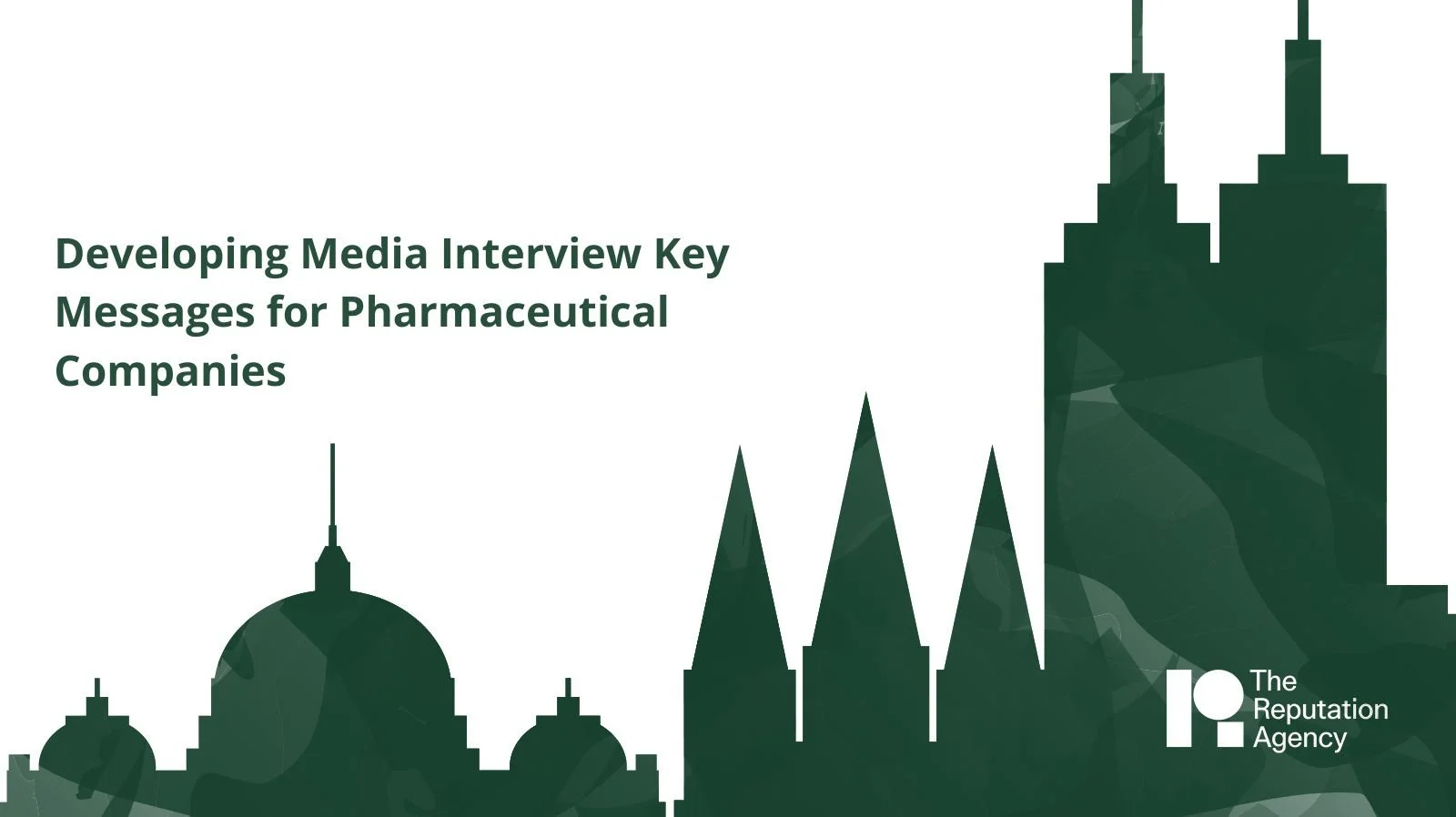Developing Media Interview Key Messages for Pharmaceutical Companies
Why Key Messages Matter in Pharma Media Interviews
In the pharmaceutical industry, media interviews can significantly shape public perception and trust. Accurate, clear, and consistent messaging is crucial to protect a company’s reputation, communicate complex information effectively, and build confidence among stakeholders, healthcare professionals, and the general public. Well-prepared key messages ensure executives stay on point while addressing sensitive topics.
The Role of Key Messages in Pharmaceutical Media Engagement
Maintaining Accuracy and Compliance
Pharmaceutical companies operate in a highly regulated environment. Key messages ensure that executives communicate factual, compliant, and ethical information while avoiding statements that could trigger legal or regulatory scrutiny.
Building Trust and Credibility
By delivering consistent and clear messages, pharmaceutical companies reinforce their expertise and reliability. This is especially important when discussing clinical trial results, drug approvals, or public health initiatives.
Steps to Develop Effective Key Messages
1. Understand Your Audience
Identify the primary audience for each media interaction. Key messages should resonate with:
Healthcare professionals
Investors and industry stakeholders
Patients and the general public
Understanding audience needs and expectations helps tailor messages that are relevant and persuasive.
2. Define Core Themes
Determine the key themes you want to communicate. Common themes in pharmaceutical interviews include:
Innovation and research achievements
Commitment to patient safety and efficacy
Corporate responsibility and ethical standards
Each message should support your company’s reputation and align with broader communication strategies.
3. Keep Messages Clear and Concise
Media interviews demand clarity. Each key message should be:
Short and memorable
Avoid technical jargon unless speaking to specialists
Focus on one main point per message
Concise messages help executives respond confidently and prevent misinterpretation.
4. Prepare Supporting Evidence
Provide concrete examples or data to reinforce key messages. For pharmaceutical companies, this could include:
Clinical trial results
Regulatory approvals
Patient success stories
Evidence adds credibility and strengthens public trust.
5. Anticipate Difficult Questions
Identify potential challenging questions and prepare responses aligned with your key messages. This ensures executives can address sensitive issues calmly while staying on brand. Consider questions about:
Product safety or recalls
Industry controversies
Competitive positioning
6. Practice and Refine
Rehearse key messages through mock interviews or media training sessions. Practice improves delivery, timing, and confidence, ensuring executives convey messages naturally and authoritatively.
Did You Know?
Studies show that executives who use pre-prepared key messages during media interviews are 40% more likely to be perceived as credible and trustworthy by journalists and audiences.
Delivering Messages with Impact
Effective key messages not only communicate information—they shape perception. In the pharmaceutical sector, where public trust is paramount, having structured and rehearsed messages ensures executives can confidently navigate interviews, build credibility, and protect corporate reputation.
Need Help Developing Media Key Messages?
The Reputation Agency specialises in media training and messaging for regulated industries, including pharmaceutical companies. Learn more about our media training and public speaking services to prepare your executives for successful media engagement.
FAQs
1. Why are key messages important for pharmaceutical companies?
Key messages ensure clear, consistent, and compliant communication, protecting the company’s reputation during media interactions.
2. How do you tailor key messages for different audiences?
Identify the audience’s needs and knowledge level, whether healthcare professionals, investors, or the general public, and adjust messaging accordingly.
3. How many key messages should an executive prepare?
Typically 3–5 core messages are ideal, focusing on clarity, brevity, and impact.
4. How can supporting evidence improve key messages?
Including data, case studies, or regulatory milestones reinforces credibility and helps build trust with the audience.
5. What role does media training play in message delivery?
Media training helps executives rehearse key messages, improve confidence, manage challenging questions, and ensure consistent, professional delivery.

